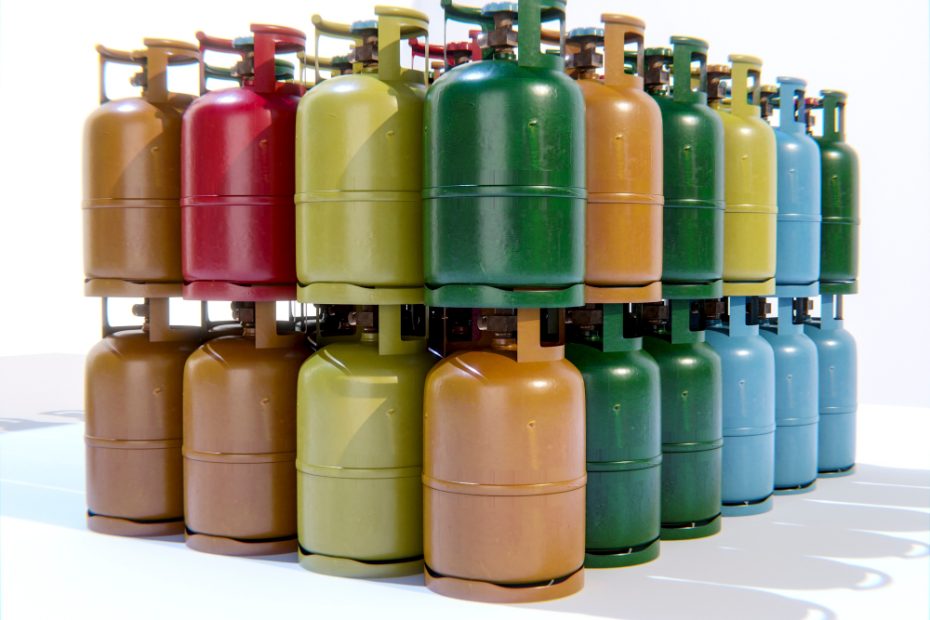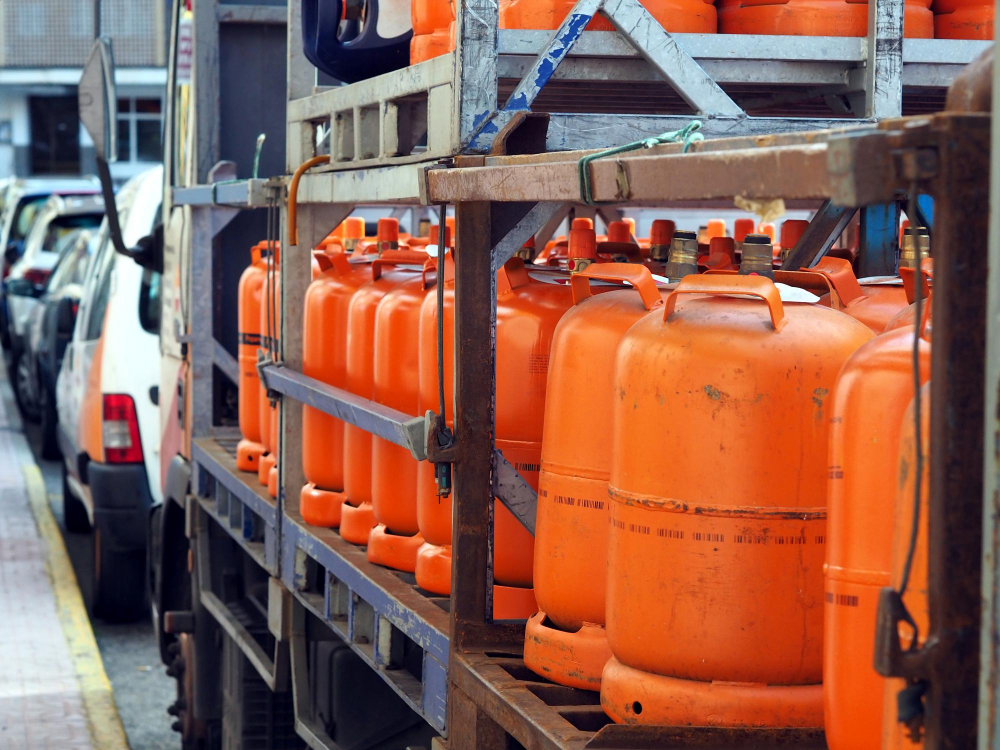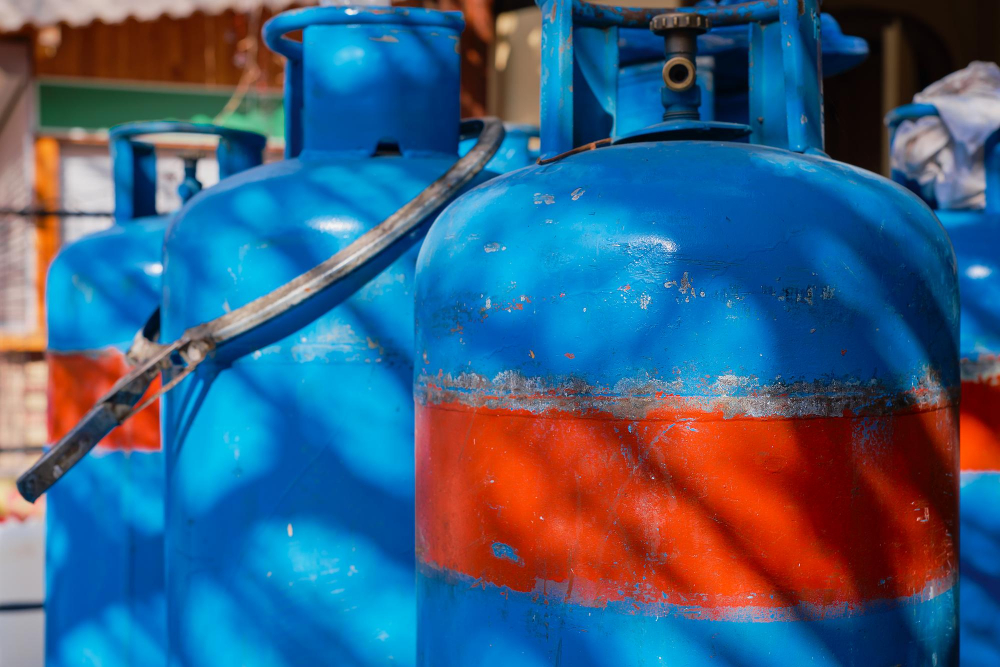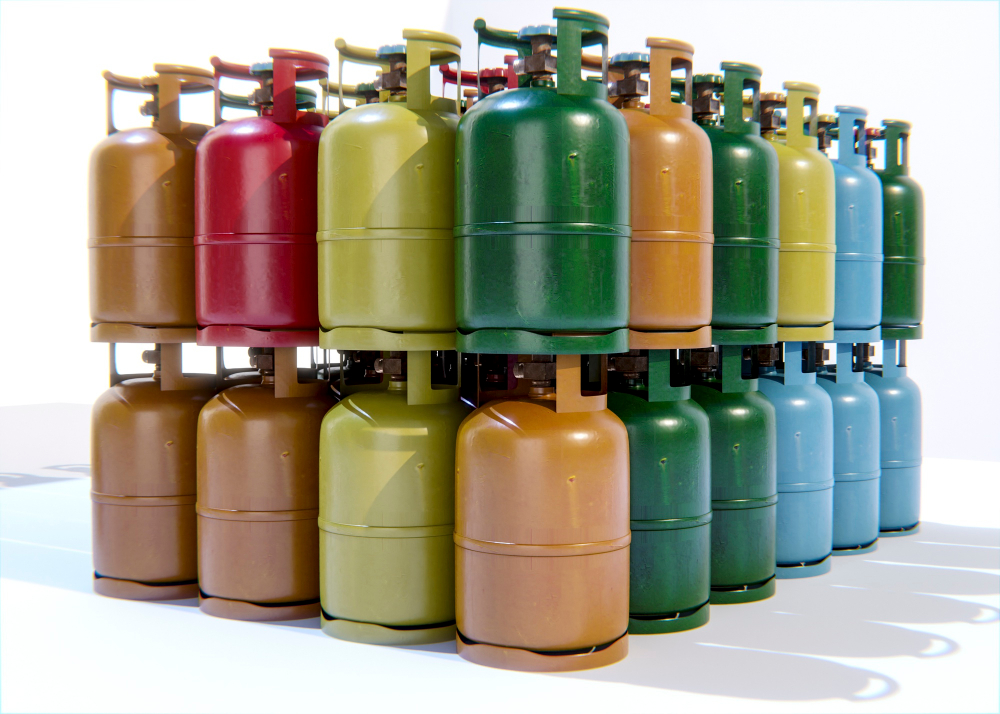Can you store gas bottle under BBQ?
Introduction
It is common for individuals in the UK to own a barbecue (BBQ) and use it to enjoy outdoor cooking during the summer months. However, when it comes to storing a gas bottle for the BBQ, there may be some confusion and concerns about safety. In this article, we will address the question, “Can you store a gas bottle under a BBQ?” and provide you with all the information you need to ensure the safe storage and usage of your gas bottle.
The Importance of Gas Bottle Safety
Before discussing whether it is permissible to store a gas bottle under a BBQ, it is crucial to understand the importance of gas bottle safety. Gas bottles contain highly flammable substances that can pose serious risks if mishandled or stored improperly. It is essential to take necessary precautions to prevent accidents and ensure the safety of yourself, your family, and your property.
Quote:
“Proper storage and handling of gas bottles is vital to minimize the risk of fire, explosion, and other hazards associated with these pressurized containers.” – Health and Safety Executive (HSE)
Gas Cylinder Storage Regulations
In the UK, there are specific regulations imposed by the Health and Safety Executive (HSE) that govern the storage and handling of gas cylinders. These regulations are in place to protect individuals and property from potential hazards associated with gas bottles.
According to the HSE guidelines, gas cylinders should not be stored indoors, particularly in living or sleeping areas. They should be stored in well-ventilated areas away from combustible materials, sources of ignition, direct sunlight, and extreme temperatures. The aim is to minimize the risk of leakage, overheating, or accidental ignition.
Storing Gas Bottles Under a BBQ
Given the guidelines set forth by the HSE, storing a gas bottle directly under a BBQ is generally not recommended. Placing a gas bottle beneath a BBQ can increase the risk of heat exposure, especially if the BBQ is in use. This proximity to heat sources can cause gas bottles to become overheated, potentially leading to an increased risk of gas leakage or even explosion.
Safe Alternatives for Gas Bottle Storage
While storing a gas bottle under a BBQ is not advisable, there are alternative options that ensure both convenience and safety. Here are a few suggestions:
- In a well-ventilated outdoor storage unit: Consider placing your gas bottle in a designated outdoor storage unit made specifically for gas cylinders. These storage units are designed to protect the gas bottle from direct heat sources while providing proper ventilation.
- On a secure stand: You can opt to place your gas bottle on a secure stand located near the BBQ. This allows for easy access while still maintaining a safe distance between the heat source and the gas bottle.
Consider the layout of your outdoor space and aim to find a storage solution that ensures both accessibility and safety. Remember to always follow the specific instructions provided by the gas bottle manufacturer regarding storage and usage.
In Conclusion
In summary, it is not recommended to store a gas bottle directly under a BBQ due to the associated risks of heat exposure and potential hazards. It is important to prioritize safety by adhering to the storage guidelines set forth by the Health and Safety Executive (HSE). Explore safe alternatives, such as utilizing designated outdoor storage units or secure stands, to ensure the proper storage and usage of your gas bottle. By following these guidelines, you can enjoy your BBQ while minimizing any potential risks associated with gas cylinder storage.
How much gas does a BBQ use per hour?
One of the common questions that arise when planning a BBQ is how much gas it will consume per hour. The amount of gas used by a BBQ varies depending on several factors such as the size and type of the grill, the heat setting, and the duration of cooking. However, it’s important to have an estimate to ensure you have enough gas for your grilling sessions.
Factors Affecting Gas Consumption
There are a few key factors that can impact how much gas your BBQ uses per hour:
- Grill Size: Larger grills generally consume more gas than smaller ones due to a larger cooking surface and more burners.
- Heat Setting: Higher heat settings require more gas to maintain the desired temperature.
- Cooking Duration: Longer cooking sessions will naturally consume more gas.
Estimating Gas Consumption
A rough estimate for gas consumption can be calculated based on the BTU (British Thermal Units) rating of your BBQ grill. Most grills have this information available in their specifications. It’s important to note that there are 3,413 BTUs in one kilowatt-hour (kWh).
“To estimate gas consumption per hour, divide the BTU rating by 3,413. For example, if your grill has a BTU rating of 30,000, the estimated consumption would be approximately 8.8 kWh.”
Tips to Reduce Gas Consumption
If you want to make your gas last longer during BBQ sessions, here are a few tips:
- Preheat the grill: Preheating the grill for a few minutes before cooking can help reduce overall cooking time.
- Cook with the lid down: This helps retain heat and reduce gas consumption.
- Use indirect cooking methods: By utilizing indirect heat, you can cook food more slowly and efficiently, saving on gas.
In conclusion
The exact amount of gas your BBQ uses per hour will vary depending on various factors. However, by considering the size of the grill, heat setting, and cooking duration, you can estimate the gas consumption and plan accordingly. Remember to preheat the grill, cook with the lid down, and use indirect cooking methods to optimize gas usage and extend your grilling sessions.
Where should I keep my BBQ gas bottle?
When it comes to storing your BBQ gas bottle, safety should be your top priority. Here are some important tips on where to keep your gas bottle to ensure the safety of yourself, your family, and your property.
1. Outdoor storage:
It is essential to store your BBQ gas bottle outdoors in a well-ventilated area. Gas bottles should never be stored or used indoors, as they can pose a serious risk of gas leaks and potential explosions. Choose a location that is away from any sources of ignition, such as open flames or electrical equipment, and ensure the area is dry and well-protected from extreme weather conditions.
2. Secure positioning:
When storing your gas bottle, make sure it is positioned upright and secured in a stable position. This will help minimize the risk of accidental tip-overs or damage to the bottle. Avoid placing the gas bottle near any sharp objects or heavy items that could potentially fall on it and cause a rupture.
3. Adequate distance:
Keep your gas bottle at a safe distance from any flammable materials, such as wooden structures, overhanging foliage, or propane-powered appliances. The recommended distance is a minimum of 1 meter (3 feet) from any combustible material to reduce the risk of fire hazards.
4. Storage containers:
Consider using a dedicated gas bottle storage container or a gas bottle cabinet specifically designed for outdoor use. These containers are designed to keep the gas bottle secure, protect it from the elements, and prevent unauthorized access. Always ensure the container has proper ventilation to allow any gas leaks to disperse safely.
5. Regular inspections:
Inspect your gas bottle regularly for any signs of damage, corrosion, or leakage. If you notice any issues, contact your gas supplier for guidance on next steps. Additionally, ensure that the connections and valves are tightly closed and sealed when the gas bottle is not in use.
“Safety is paramount when it comes to storing your BBQ gas bottle. Follow these guidelines to ensure a safe and enjoyable outdoor grilling experience.”
Remember, following proper storage guidelines is crucial for your safety. Always refer to the manufacturer’s instructions and local safety regulations when storing your BBQ gas bottle. By taking the necessary precautions, you can enjoy your BBQ season with peace of mind.
Can You Leave Propane Gas Bottle Outside?
Propane gas cylinders are commonly used for various purposes in the UK, including outdoor cooking, heating, and powering appliances. However, many people are unsure whether it is safe to leave their propane gas bottles outside. In this article, we will explore the guidelines and best practices for storing and using propane gas cylinders outdoors in the UK.
Storing Propane Gas Bottles Outdoors
According to the Health and Safety Executive (HSE), it is generally safe to leave propane gas bottles outside, as long as they are stored in a well-ventilated area away from sources of ignition and direct sunlight. It is important to ensure that the gas bottle is secure, upright, and protected from damage or tampering.
Here are some key points to consider when storing propane gas bottles outdoors:
- Place the gas bottle on a stable, level surface.
- Keep the gas bottle at least 1 meter away from any combustible materials.
- Ensure the gas bottle is not obstructed and has proper airflow.
- Protect the gas bottle from extreme temperature changes.
- Use a suitable gas bottle cover or protective case to shield it from the elements.
Using Propane Gas Bottles Safely
It is important to use propane gas bottles outdoors responsibly and follow the manufacturer’s instructions. Always check for any signs of damage, such as leaks or corrosion, before using the gas bottle.
“Always handle propane gas bottles with care and follow proper safety precautions.”
When connecting or disconnecting the gas bottle, ensure that all connections are secure and tightly fitted. If you suspect a leak, do not attempt to fix it yourself. Instead, turn off the gas supply, move away from the area, and contact a qualified professional.
Can I leave butane outside in winter?
Many people wonder whether it is safe to leave butane canisters outside during the winter months. Butane is commonly used as fuel for portable stoves, camping heaters, and other outdoor appliances. However, extreme temperatures can affect the performance and safety of butane canisters.
Understanding the effects of cold weather on butane
Butane is highly sensitive to temperature changes. In colder temperatures, butane can experience a decrease in pressure, which can affect its ability to vaporize and provide a consistent flame. This can lead to poor performance and difficulty in igniting the fuel. Additionally, storing butane in extremely cold conditions can cause the canister to contract and potentially crack or leak.
Best practices for storing butane in winter
To ensure the longevity and safety of your butane canisters during the winter season, it is recommended to follow these best practices:
- Store in a cool, dry place: Find an area in your home or garage that remains relatively stable in temperature and humidity.
- Avoid exposure to extreme cold: If possible, keep the butane canisters indoors to prevent them from freezing.
- Protect from direct sunlight: Sunlight can heat up the canister and increase the pressure inside, which may lead to leakage or other safety hazards.
- Inspect for damage: Before using a butane canister that has been stored in the cold, check for any signs of cracks, leaks, or other damage.
If you are planning to use butane outdoors during winter activities, it is essential to take necessary precautions. Always check the manufacturer’s guidelines for storage and usage instructions specific to your butane product.
“It is crucial to remember that extreme temperatures can negatively impact the performance and safety of butane canisters, so it’s best to store them properly during winter.”
By taking the appropriate steps to store butane in winter, you can ensure its reliability and avoid any potential risks associated with cold weather conditions.
Conclusion
In summary, you can leave propane gas bottles outside in the UK, provided they are stored correctly and follow safety guidelines. Remember to store them in a well-ventilated area, protect them from damage and extreme temperatures, and always use them responsibly. By following these precautions, you can enjoy the convenience of outdoor propane gas usage safely.



